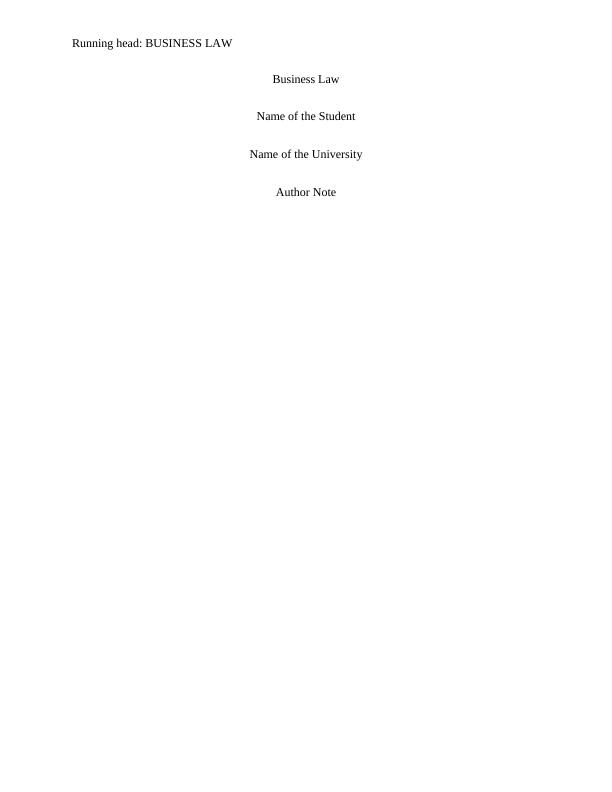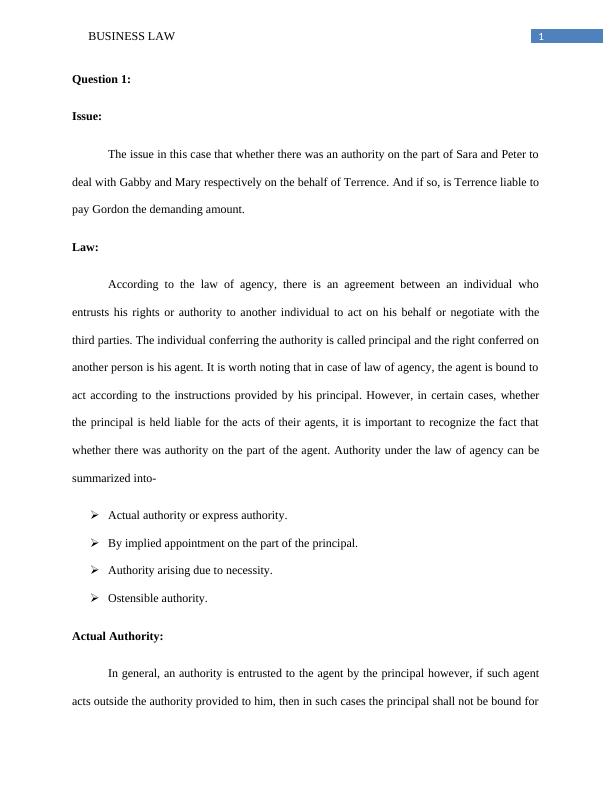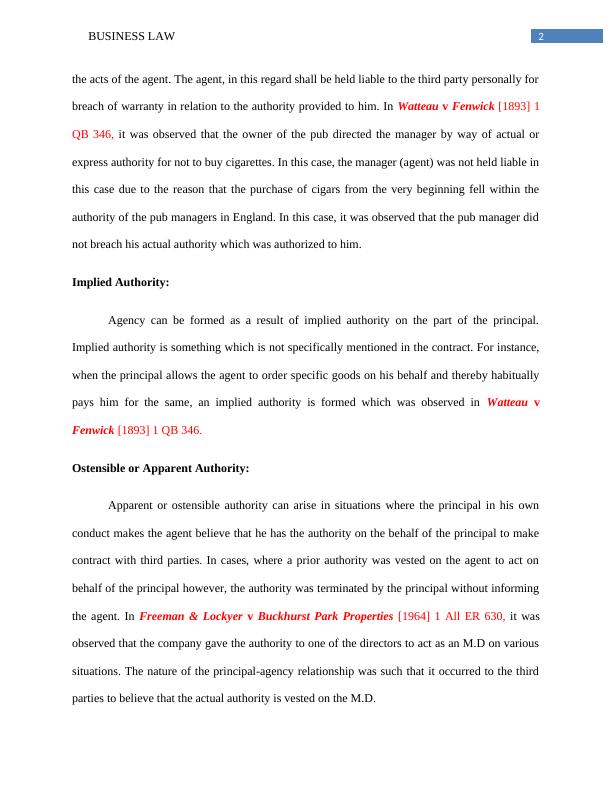Business Law: Authority and Liability in Agency Relationships and Corporate Law
Explaining how to answer problem questions in law using the ILAC method.
9 Pages2191 Words294 Views
Added on 2023-06-13
About This Document
This article discusses the law of agency, authority, and liability in business law. It covers the different types of authority, including actual, implied, ostensible, and agency by necessity, and how they apply in different situations. It also discusses the doctrine of corporate veil and how it affects liability in corporate law. The article uses case studies to illustrate the application of these concepts in real-life scenarios.
Business Law: Authority and Liability in Agency Relationships and Corporate Law
Explaining how to answer problem questions in law using the ILAC method.
Added on 2023-06-13
ShareRelated Documents
End of preview
Want to access all the pages? Upload your documents or become a member.
Agency and Corporation Law - Assignment
|10
|2375
|64
Corporation Law: Liability of Agents and Lifting of Corporate Veil
|9
|2389
|364
Commercial and Corporation Law
|8
|2390
|79
Business Law: Liability of an Agent and Agency by Necessity
|6
|1211
|168
Roxy's Liability and Rights under Agency Law
|5
|1222
|26
The Assignment on Business and Corporation Law
|12
|2994
|20



